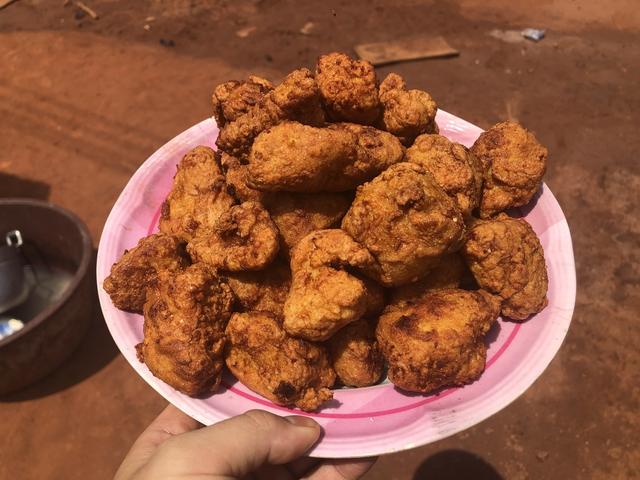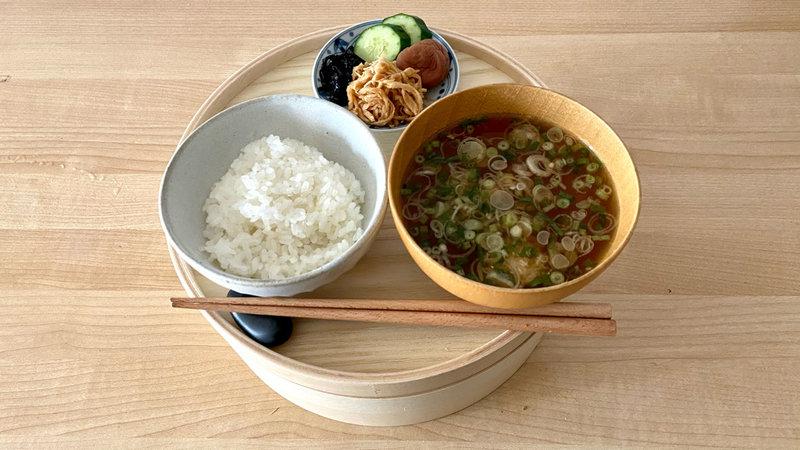Can Messori Produced by Recruit "Fried" can grasp Ghana's stomach?27 -year -old "rice geek" is a food frontier
(Photo provided by Mr. Sekine)
What comes to mind when you think of the Republic of Ghana, located near the equator in West Africa? A major cacao producer, a country where Hideyo Noguchi fell ill with yellow fever, and a soccer powerhouse in recent years...
After a little more research, it seems that the world is paying attention to Ghana's development potential, such as major IT companies building bases and oil being discovered in the 21st century. However, for many Japanese people, the country is still far away.
This time, I heard that there is a 26-year-old Japanese (at the time of the interview, now 27) who has jumped into such a distant Ghana and is preparing to open a fried chicken restaurant. will be sent.
Why do they sell fried chicken in Ghana? "What is your life like there?" "I mean, what kind of person is he?" ? And so on, when I confronted him with endless questions, I witnessed his vitality that made me groan, "I'm strong...".
In the interview below, Kento Sekine, who opened a fried chicken restaurant "YOOFIN" in Accra, the capital of Ghana, talks in detail about his predilection for food, social issues facing Ghana, abandoned businesses, and future prospects. He told me.
*This interview was conducted online in mid-September 2021.
“Rice geeks” fascinated by “delicious” go to Ghana
(Photo courtesy of Hiroki Yamaguchi)
──I heard that you are currently working hard to prepare for the opening of a fried chicken restaurant. I have a lot of things I want to ask... First of all, could you tell us about your career so far, Mr. Sekine?
Mr. Sekine (honorifics omitted below): Before moving to Ghana, I started an insect restaurant called "ANTCICADA" with a friend, and before that I was training at a Michelin one-star restaurant. When I was a student, I visited more than 50 foreign restaurants in Tokyo on a “food trip around the world,” and spent three months training at a farm in Ireland. And then, an attempt to verify whether the taste of coffee changes through the human body, such as "human coffee". Anyway, I have accumulated various experiences in search of "delicious".
──There were a lot of things that bothered me, but... the strength of your curiosity is amazing.
Sekine: When I was little, I was always interested in eating wild plants, dandelions served with sashimi, and crayfish tails. The reason I was committed to the insect restaurant was because I wanted to increase someone's "delicious" options. If you are impressed by eating insects, from the next day onwards, all the living creatures around you, such as weeds on the roadside, may look like delicious ingredients. In this way, I find it interesting to expand someone's horizons based on "delicious".
──Somehow, I could see Mr. Sekine's stance. By the way, why fried chicken?
Sekine: I've always loved fried chicken, and when I was a university student, I used to go to a fried chicken restaurant every day. Besides, there is an atmosphere that everyone can say that fried chicken is delicious. Among gourmets, there is an atmosphere where people don't easily say "delicious" to simple tastes, but for me it's enough to just eat together and share "delicious". That's why my favorite dish is the delicious fried chicken, which is full of garlic and has a strong flavor.
(Photo provided by Mr. Sekine)
──It is true that karaage is a dish that both children and adults like. However, is it a taste that can be accepted in Ghana, which has a different food culture?
Sekine: In recent years, the consumption of chicken has been increasing in African countries, including Ghana. I get the impression that local people always eat chicken in the form of chicken stew (fufu and banku, which are staple foods that are dipped in) and yakitori. In terms of seasoning, the combination of oil, garlic, ginger and salt is widely favored in Ghana. Also, the presence of a “Japan brand” is surprisingly important. Recently, it is often said that there is no momentum in Japan, but I think that "delicious" is a very strong brand image that remains in Japan. In Africa, the achievements of Japanese cars have also contributed to the trust in quality and the high favorable impression of Japanese people. I thought that karaage was the most popular Japanese dish. It was very well received when I played it locally.
──How did the locals react?
Sekine: He said things like, "The batter is delicious!", "It's delicious with garlic!", and "It's a new kind of fried chicken!" Actually, there is already a world-famous fried chicken chain store in Accra, the capital, but it is an image of a store that people who still have plenty of money go to. Most of the locals eat cheap local food from food stalls. However, although it is very delicious, the repertoire is overwhelmingly small with the combination of staple food + stew. That's why we plan to start by offering new flavors at local prices from stalls that local people are familiar with.
──That's right. By the way, isn't it necessary to localize fried chicken to suit Ghanaian tongues at all?
Sekine: Anyway, people in Ghana love spicy food, and they eat everything with a spicy seasoning called "Sito". I think I should prepare a "shito" that goes well with fried chicken, according to the local area.
▲ Shito. It is made from red pepper, ginger, garlic, salt, fried shrimp, fried fish, onions, etc. (Photo courtesy of Mr. Sekine)
Sekine: There are also many people who eat chicken up to the bones, and some say that the bones are the most delicious. So I'm going to offer fried chicken with bone too.
The “poultry farming franchise” concept that I saw while staying in Ghana
(Photo courtesy of Mr. Sekine)
──Mr. Sekine, you have traveled to many countries so far. Why did you decide to start your business in Ghana?
Sekine: Actually, you were originally trying to do a different business. Specifically, it was a business to add new value to Ghanaian cashew nuts like specialty coffee and sell them to Japan. Ultimately, I was thinking of a model that would solve the poverty problem of small-scale farmers. So in the spring of 2021, I traveled and stayed there, but when asked if I could monetize it, I couldn't say "YES" with 100% confidence. ……I will talk about the details in the second half, but I was originally interested in solving social issues in developing countries, so when I thought about a business that could solve problems while putting down roots in Ghana, I decided to open a fried chicken specialty store. came up with an idea.
──Are you solving social issues with fried chicken?
Sekine: Yes. The first is to support small-scale farmers with poultry farming. The other is that "local employment can be created". While many crops are affected by the season and weather, poultry farming has relatively little weather risk and provides a stable income. Poultry farming is relatively easy and doesn't require any special abilities to get started. In addition, chicks can be cashed in two months, making them a strong ally for cash flow.
── So you want farmers to do "poultry farming" as well?
Sekine: But while I was staying with a cashew farmer in Ghana, someone told me, "I have a chicken coop, but I don't have the funds to buy and raise chickens." That's why I thought that if I could overcome the first hurdle and introduce poultry farming, it would have a definite effect on my income. So I thought of microfinance where I would lend out the initial cost. There is a risk that the money will not be repaid with microfinance, but I thought that if I had the money repaid with chickens instead of money, I could definitely recover. There is little risk for the farmer, and the chicken will be purchased by the fried chicken shop. In the future, I am also thinking about branding a poultry farming model that raises delicious chickens and having many small-scale farmers introduce it in the form of a franchise.
──In addition to the fried chicken store, you also do chicken farming as a set. It seems to be linked to the background of "increasing demand for chicken in African countries" that you mentioned earlier. And what about another job?
Sekine: As I stayed in Ghana and interacted with various people, I realized that there was a shortage of jobs. Even at the farmer's house where I stayed, there were many young people who were in the prime of their career, but they had no choice but to do farm work because there was no job even if they went out to work. Even though I say work, it's pretty laid back and takes about two hours a day. Again, I thought that creating numbers and creating employment is a simple but extremely important thing. Then, I thought that if I opened a fried chicken shop locally, I would be able to create jobs little by little.
──I didn't expect that you would talk about the economy and employment from talking about your love for fried chicken.
Sekine: Another appealing aspect of fried chicken is that it is relatively easy to operate. When considering future expansion, the ease of teaching recipes will be a very important factor. Both are still in the beginning, and there are many things to do, but first, I will focus on the food stalls.

Abandonment of the cashew nut business
▲The seed part of the cashew, that is, the “cashew nut”. This is processed overseas and shipped to the world (Photo provided by Mr. Sekine)
──Aside from the fried chicken restaurant, could you tell us more about the cashew nut business you mentioned earlier?
Sekine: If you look at the back of the bag of cashew nuts that we usually eat, most of them are written as "made in India (or made in Vietnam)". However, it is actually grown in various regions around the world, such as Ghana and Cote d'Ivoire. It is exported to India, processed, and then exported all over the world again, so it is labeled as "Made in India."
──That's right.
Sekine: There must be a lot of people who want to know the story of how the food they eat reaches the table, but I thought it was uninteresting that it was a black box. So, like specialty coffee, I wanted to create a specialty cashew culture where you can compare the tastes of each farm that produces cashew nuts, and that is what led me to travel to Ghana.
──Certainly, I never cared about the country of origin of cashew nuts.
Sekine: Cashew nut farmers are vulnerable to exploitation in the structure, just like coffee. In particular, many small-scale farmers in Sub-Saharan Africa (the region south of the Sahara Desert in Africa) live in poverty, and face many problems such as being unable to send their children to school. I thought that if cashew nuts could be traded at a sufficient price, it would lead to a solution to the problem. In addition, the pulp of cashews is called cashew fruit (also known as cashew apple), and I wondered if I could make use of this as well. It has a unique flavor, but it is sweet and sour, which is quite a rare taste. However, due to the fact that it contains a large amount of water and is perishable and difficult to store, most of it is discarded. I thought that if we could add value to cashew fruits, we could increase the income sources of farmers.
── So your first trip was a field survey of a cashew farmer?
Sekine: Yes. At first, I didn't have any connections with cashew farmers, so I headed to the countryside on a shared bus and searched for cashew farmers. Luckily, I found him right away, and I was able to spend about a month and a half with him helping with farm work and cooking together. I had a lot of feelings about it.
──To think it was a ramming... What is awareness?
Sekine: There are cashew fruits that naturally fall from the trees scattered around the farm, and when harvesting, they are picked up and only the nuts are removed. However, the fruit spoiled faster than I had expected, and insects were gathering, making it difficult to use it as an ingredient. Of course, it is possible to change the harvesting method, but it takes a lot of labor, and it seems quite difficult to harvest the fruit from a high tree.
(Photo provided by Mr. Sekine)
Sekine: Also, cashew farmers didn't grow only cashews. Mangoes, cassava, chili peppers, cola nuts, and more than a dozen kinds of fruits and vegetables, and one of them is cashew. Moreover, cashews are harvested only three months out of the year. Even if I was able to increase the value of cashews, I thought that the effect would only be short-lived and the impact would be weak.
──It is difficult to change the destitute situation with cashew alone.
Sekine: With this realization, rather than adding value to Ghanaian resources and selling them in Japan, we decided to put down roots here and compete in the local African market. The feeling of wanting to go came up. Besides, as I said at the beginning, another big theme for me is to increase the deliciousness. I think that people in Africa, including Ghana, who are in the midst of rapid population growth and economic development, will seek more and more "delicious" food. However, there are still very few food options. Therefore, I wanted to increase the supply of "delicious" to Africa through fried chicken shops.
Expanding food frontiers with fried chicken
(Photo courtesy of Mr. Sekine)
──Back to the food stalls. As of the end of September 2021, are there any difficulties in preparing for the opening? "In Japan, things like qualifications and notifications are difficult, aren't they?"
Sekine: After all, there are a lot of hardships that are different from Japan. Can you say African time? Everything moves slowly here, so I feel uneasy every day as a person who wants to start a food stall as soon as possible. Orders are naturally delayed, and even if you make an appointment, it's normal to be several hours late. . It can't be helped if I get irritated every time, so now I'm trying to accept that as it is (laughs).
──Japan is too strict.
Sekine: I'm also struggling with procedures. When local people open a food stall, it is said that they can start right away without any restrictions, but if a foreigner wants to open a food stall, it is necessary to strictly follow all procedures such as work permits, land permits, and eating and drinking permits. bottom. Furthermore, the day after we finally got permission for the land, there was also a problem that unknown products were displayed on the land we had reserved. When I go to the Land Registration Office to lodge a complaint, it turns out that the staff member who dealt with me last time didn't actually have the authority to register the land, and I've had a wry smile on my face (laughs). Even national institutions would rip off foreigners just because they were foreigners, so I used my energy to deal with that as well.
(Photo provided by Mr. Sekine)
──That sounds like a lot of work... There are a lot of things you don't know about running a food stall from now on.
Sekine: One of the reasons I chose a food stall is that it is easy to make trial and error. The reality is that we still don't fully understand the needs of the local people, so I'd like to start small at the food stall and repeat trial and error while observing the reaction.
▲In order to prevent crime, the equipment needs to be reconfigured each time. (Photo courtesy of Mr. Sekine)
──From what we've been talking about, Sekine-san doesn't seem to be afraid to start a new challenge alone in an unknown land. Do you have a stance that you hold dear?
Sekine: I value the attitude of immersing myself in whatever interests me the most. In order to maintain such an attitude, I believe that I must be able to reset myself at any time. No matter how old you are, even if you've reached level 50 in that field, break yourself and start again from level 0. Even if you restart from level 0, if you devote yourself to it for about a year, the scenery you see will change unexpectedly. People can change a lot in a year. I believe so, so I don't feel so scared.
──Tsu, strong……. Is it because you have a clear goal to spread “delicious”?
Sekine: Yes. Also, when I have visited overseas, there have been many times when I have served fried chicken to the foreigners I met while traveling. There was also a chance to become friends with fried chicken. That's why I have some confidence that "delicious fried chicken should be loved all over the world."
There are many things that need to be done right now, but first, we will make it a fried chicken brand that is loved by local people, and eventually we will spread it to many areas of Ghana, and the surrounding West African countries, and finally. I would be happy if I could increase "delicious" throughout Africa.
── So, Mr. Sekine, no, Japanese soul food, fried chicken has become a gateway to the world. We look forward to your future success. Please let me interview you again in a few years. Thank you for today!
▲Fresh fried chicken for the first time at a food stall (Photo courtesy of Mr. Sekine)
“YOOFI” in the name of the fried chicken restaurant “YOOFIN” means “born on Friday”. In Ghana, there is a culture of remembering the day of the week when family and friends were born, and it seems that nicknames are given according to the day of the week. In keeping with that culture, Mr. Sekine carved the date of his first visit to Ghana, April 2, 2021 (Friday), into the shop name.
"It's Friday, let's eat fried chicken." Aiming for a future where such conversations become part of everyday life in Africa, Mr. Sekine is working hard to prepare for the opening of the store today.
*Later story
The interview was held in September before the store opened, but as of November 2021, one month has passed since the opening. Looking at the local reports on Twitter, it seems that the locals are slowly gaining recognition as intended (while getting into all sorts of trouble).
If you are interested in Mr. Sekine's story of Ghana stall struggle, please check the following Twitter.
Written by: namahoge
Born in 1995, lives in Yokohama. When he was in college, he published the regional literary magazine "Miura Peninsula Journal". Currently a freelance writer who covers, shoots, and writes on themes such as music, cooking, literature, and the local community. My favorite food is porridge.
Read also past articles






![lifehacker lifehacker LifeHacker LifeHacker A carabiner that is convenient for cutting packaging at the entrance. Excellent sharpness for medical blades! [Today's life hack tool] lifehacker lifehacker LifeHacker LifeHacker A carabiner that is convenient for cutting packaging at the entrance. Excellent sharpness for medical blades! [Today's life hack tool]](http://website-google-hk.oss-cn-hongkong.aliyuncs.com/drawing/223/2022-3-2/28016.jpeg)

![lifehacker lifehacker LifeHacker LifeHacker [2021] 7 Recommended Dishwashers | Introducing High Cospa & Compact Products lifehacker lifehacker LifeHacker LifeHacker [2021] 7 Recommended Dishwashers | Introducing High Cospa & Compact Products](http://website-google-hk.oss-cn-hongkong.aliyuncs.com/drawing/223/2022-3-2/30293.jpeg)
Masaki Aiba's "VS Damashii" member theme song project started!Shori Sato & Yuta Kishi laugh at orders in English
We take the place of ... Children who directly appealed to His Majesty the Emperor for the release of his father in the Nara period (December 11, 2021) --Excite News
The 26-year-old who doesn't know love met ... "Literature Virgin-The Story of Late Blooming Love-" (November 22, 2021) --Excite News
How can I create music with Deep Learning? -Builders.flash ☆ -Builders.